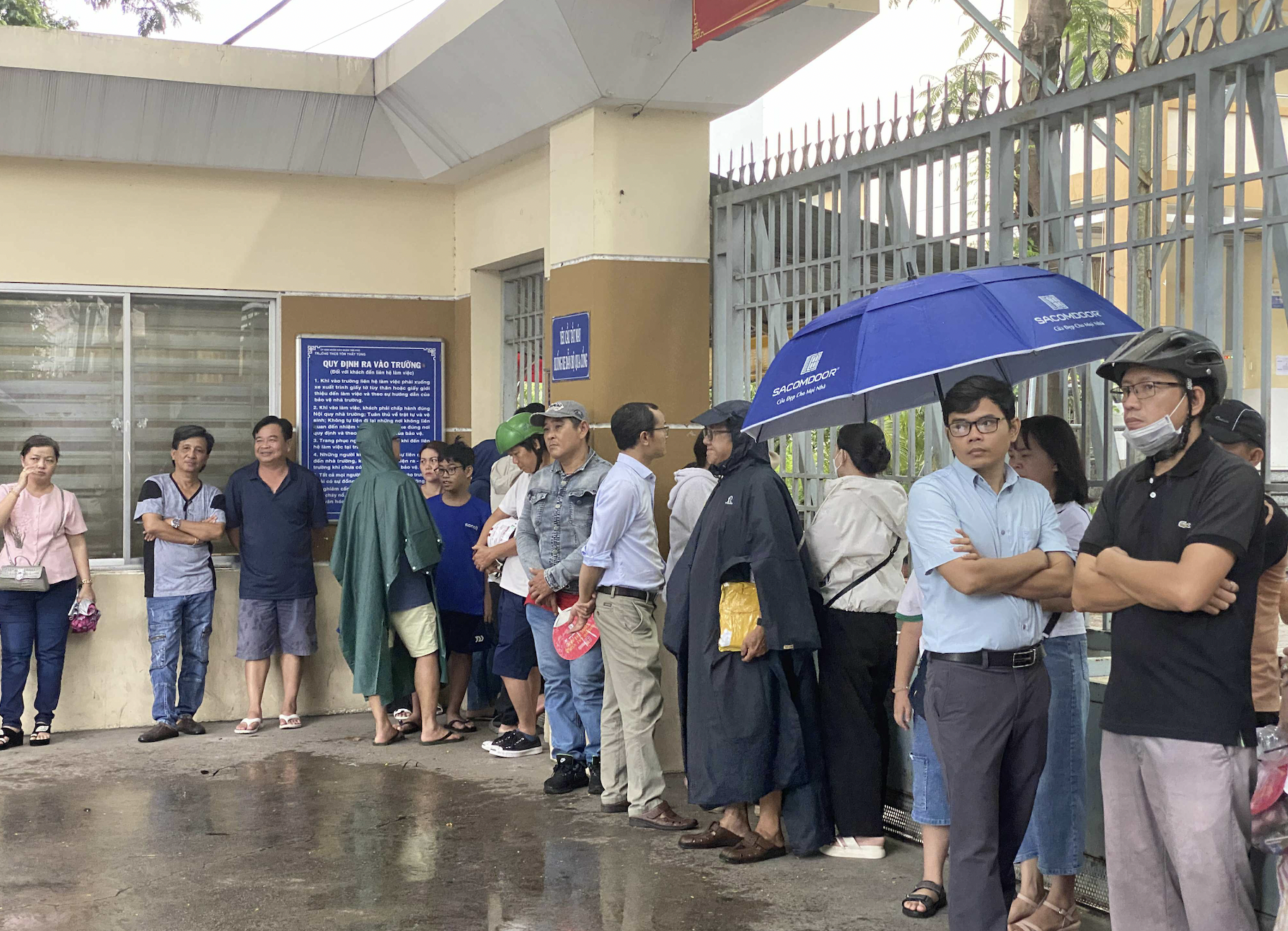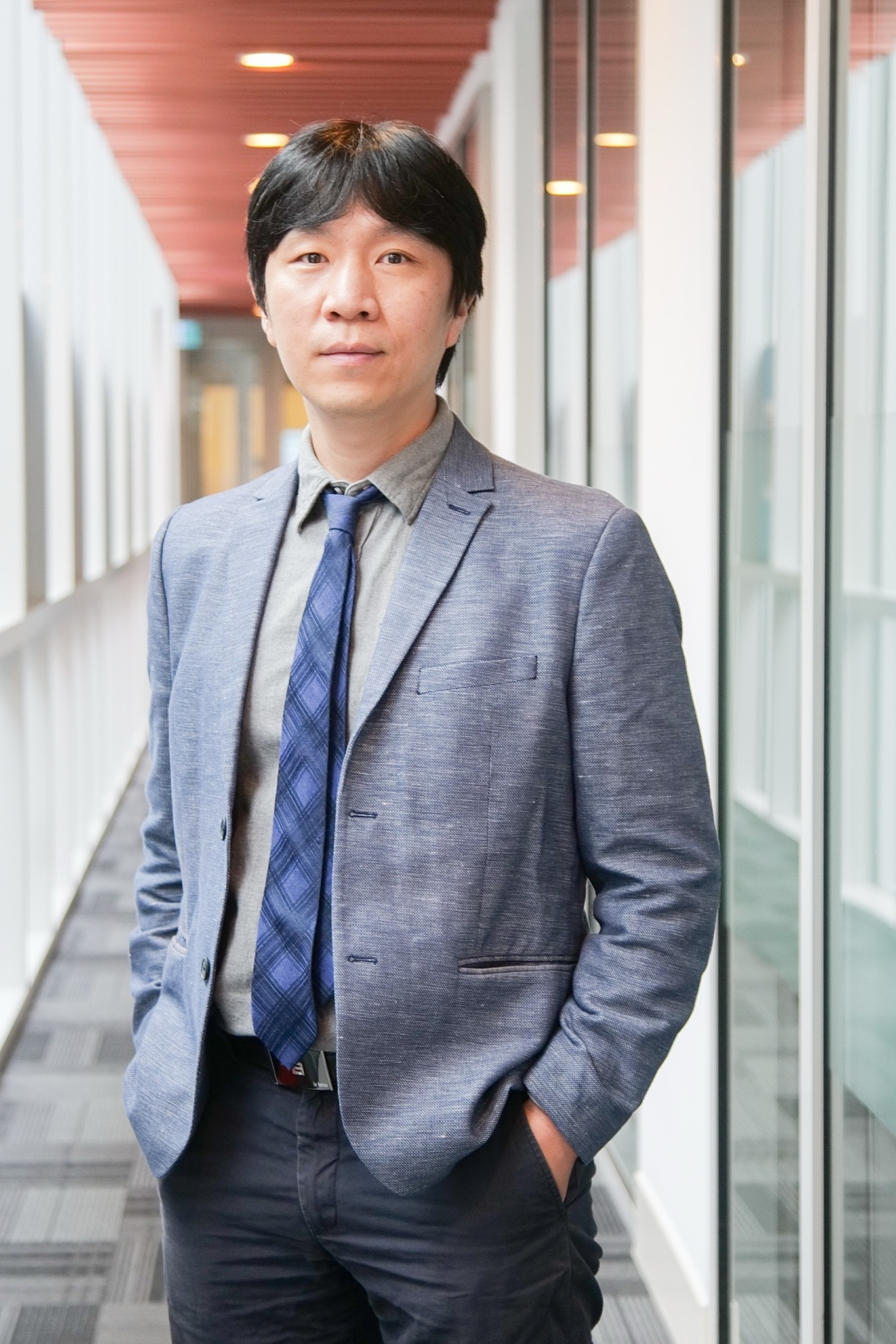Some were deep in thought with worried expressions, some chatted, and others brought snacks and drinks. Initially, the Malaysian education expert thought it was a general parent-teacher meeting. After inquiring, he learned that they were there to support their children taking the high school graduation exam.
"I was suddenly moved by the affection Vietnamese parents have for their children and impressed by the energy of this community," Fernando said.
He noticed a distinct change in the atmosphere in Hanoi and Ho Chi Minh City. The streets near schools were more crowded with parents. Bookstores and cafes were packed with students studying. He understood the immense pressure as this exam determines university opportunities and future careers.
Street vendors also sold food and drinks to accommodate the students' busy study schedules. Parents not only took care of their children's transportation and meals but also encouraged them and maintained a quiet home environment.
This atmosphere is very different from his homeland. In Malaysia, the SPM (Sijil Pelajaran Malaysia - Malaysian Certificate of Education) exam is also important but quite calm, without the scene of parents braving the sun and rain waiting outside the school gates.
Meanwhile, the exam in Vietnam transforms the entire neighborhood around the school into a center of support and encouragement. Local authorities coordinated traffic to ensure students arrived at the exam sites on time and without any issues.
"I realized that the high school graduation exam has become a cultural event, attracting the entire community, changing the rhythm of life, and reflecting the importance placed on education in Vietnam," Fernando commented.
 |
Parents wait for their children in front of a school in District 5, Ho Chi Minh City, on the afternoon of 26/6. Photo: Ngoc Ngan |
Parents wait for their children in front of a school in District 5, Ho Chi Minh City, on the afternoon of 26/6. Photo: Ngoc Ngan
Being South Korean, Dr. Jung Woo Han, deputy director of academics and teaching quality at RMIT University Vietnam, is no stranger to the scene of "the whole country taking exams." The suneung university entrance exam in South Korea is also very stressful.
But the way Vietnamese people support students taking the exam, with a strong community spirit, still moved Han. The sight that impressed him the most was the young volunteers guiding candidates to the exam rooms. Shops hung banners saying "Good luck with the exam", strangers handed out water and snacks, even including encouraging messages. All of this stemmed from the voluntary spirit of the entire society.
However, he recognized that this level of attention creates considerable pressure. Students have to put all their effort into a few days of exams, and many feel their future depends on the results. "Despite this, the students' ability to overcome difficulties is truly admirable," Dr. Jung Woo Han said. They receive support not only from teachers and parents but also from neighbors and strangers.
This community support is a prominent strength of Vietnamese education and can be a premise for re-evaluating how we define and nurture success.
 |
Dr. Jung Woo Han. Photo: Provided by the subject |
Dr. Jung Woo Han. Photo: Provided by the subject
Dr. Scott McDonald, having taught for five years at a K-12 school in Ho Chi Minh City, observed that the Vietnamese high school graduation exam is very well-organized and synchronized nationwide. He was pleased to learn that many students can now take the exam at their own schools, a familiar environment that helps reduce stress. Another positive sign is that the exam is less focused on multiple-choice questions, allowing students to demonstrate a broader understanding.
Dr. McDonald noted that Vietnamese students still mainly prepare by memorizing and discussing with friends and family. "Although traditional, this learning method shows their seriousness and determination before this important exam," he said.
On the afternoon of 26/6, while reviewing the exam questions from the first day of this year's exam, what impressed McDonald most was the shift from a uniform question-setting approach to a more flexible system. The addition of elective subjects allows students to focus on their strengths and areas of confidence, bringing a positive aspect to what is traditionally a very standardized exam.
Ngoc Ngan












